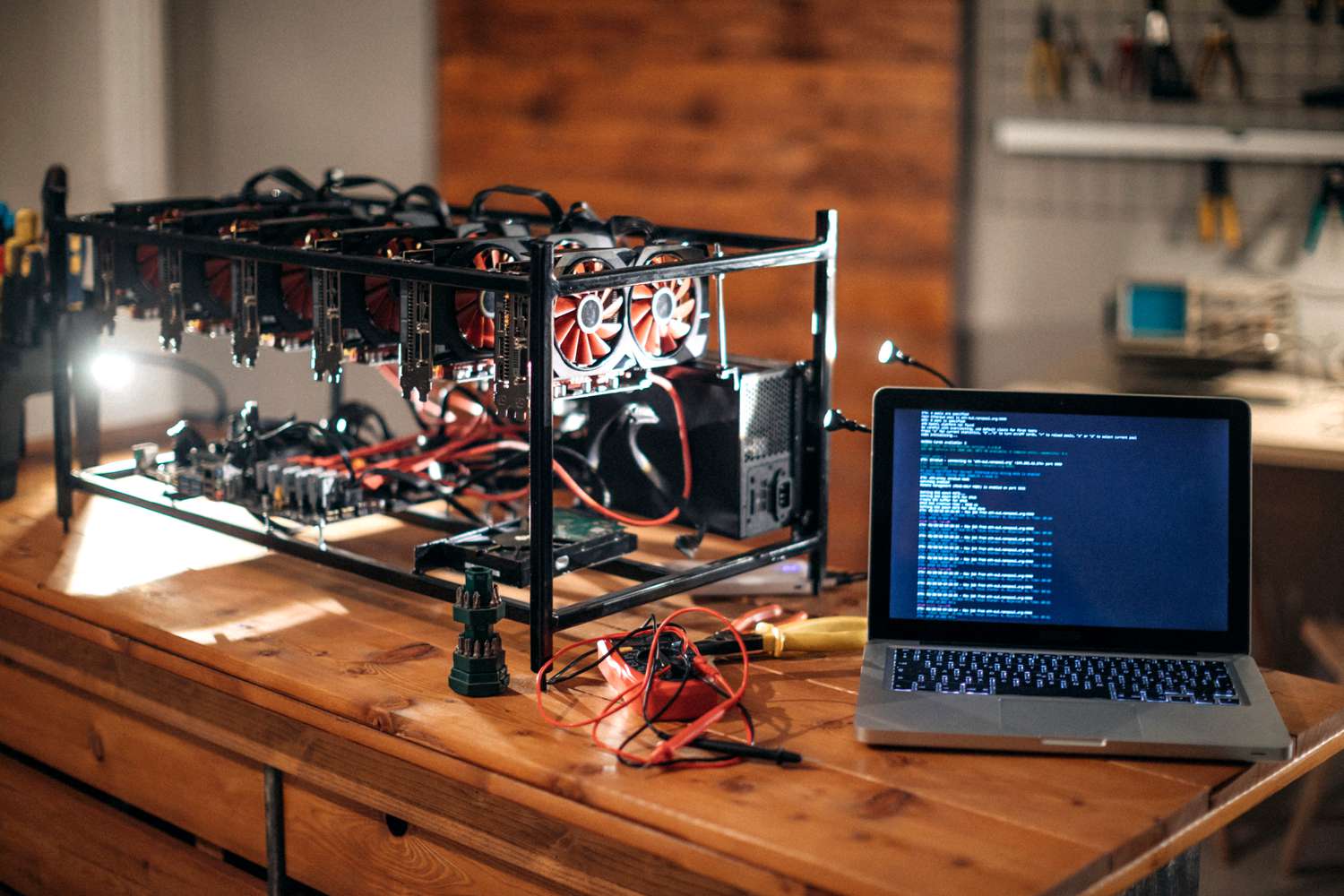A Comprehensive Guide to Bitcoin Mining: How It Works and What You Need to Know
Bitcoin mining is a cornerstone of the cryptocurrency ecosystem, ensuring the integrity of transactions and the creation of new bitcoins. Whether you're a curious beginner or a seasoned investor, understanding Bitcoin mining is essential for navigating the crypto world. In this article, we will explore everything about Bitcoin mining, from its mechanics to the tools required, along with its environmental implications.
What is Bitcoin Mining?
Bitcoin mining refers to the process through which transactions are verified and added to the blockchain, while simultaneously introducing new bitcoins into circulation. This decentralized process involves solving complex mathematical puzzles, also known as proof-of-work, which require substantial computational power and energy.
How Does Bitcoin Mining Work?
1. Transaction Verification
Every time a Bitcoin transaction occurs, it gets broadcasted to the network. Miners gather these transactions into a block, forming the basis for their mining activities.
2. Proof of Work
To add a block to the blockchain, miners must solve a cryptographic puzzle that is intentionally difficult to enhance security. This process is known as proof-of-work, which involves trial and error.
3. Finding the Hash
Miners aim to find a hash value that meets specific criteria. They do this by altering a nonce (a random number) and hashing the block header repeatedly until they discover a hash lower than the network's target.
4. Block Addition
Once a valid hash is found, the miner broadcasts the block to the network. Other miners and nodes verify the block's authenticity, and if approved, it is added to the blockchain.
5. Rewards for Mining
The successful miner is rewarded with newly minted bitcoins and transaction fees from the transactions included in the block. As of 2024, the reward stands at 6.25 bitcoins per block, a number that halves approximately every four years in an event known as the "halving."
Why is Bitcoin Mining Important?
Bitcoin mining serves several crucial functions:
- Securing the Network: By decentralizing the validation process, mining protects the network from manipulation and fraud.
- Transaction Validation: Miners ensure that each transaction is legitimate, preventing double-spending.
- Issuance of New Bitcoins: Mining is the only method to create new bitcoins, which helps maintain the digital currency's scarcity.
Essential Mining Hardware
To engage in Bitcoin mining, specialized hardware is required. The most efficient option is ASICs (Application-Specific Integrated Circuits), designed explicitly for mining tasks.
Top ASIC Miners:
- Bitmain Antminer S19 Pro: Known for its high efficiency and hash rate of up to 110 TH/s.
- MicroBT Whatsminer M30S: Offers a hash rate around 86 TH/s with remarkable energy efficiency.
- Canaan AvalonMiner 1246: Delivers approximately 90 TH/s, catering to both novice and experienced miners.
Joining Mining Pools
Given the competitive nature of Bitcoin mining, many miners opt to join mining pools. A mining pool is a collective of miners who combine their hashing power to increase the likelihood of successfully solving a block. Rewards are then distributed based on each miner's contribution.
Popular Mining Pools:
- F2Pool: One of the largest mining pools, supporting various cryptocurrencies.
- Antpool: Operated by Bitmain, it offers user-friendly features and high hashing power.
- Slush Pool: Known for its transparency and favorable fee structure.
Mining Software
In addition to hardware, you’ll need mining software that connects your hardware to the Bitcoin network and manages the mining process.
Recommended Mining Software:
- CGMiner: An open-source software compatible with various platforms and ASIC miners.
- BFGMiner: Tailored for ASIC mining, also supporting FPGA mining.
- EasyMiner: A user-friendly interface for beginners, compatible with both CGMiner and BFGMiner.
Environmental Impact of Bitcoin Mining
Bitcoin mining has drawn criticism due to its substantial energy consumption, raising concerns about its environmental footprint. The process consumes vast amounts of electricity, contributing to carbon emissions and sustainability debates.
Sustainable Mining Practices:
- Renewable Energy Sources: Many miners are transitioning to renewable energy options like solar and wind to mitigate their impact.
- Energy Efficiency: New mining equipment is continually being developed to enhance efficiency, lowering power consumption.
- Geothermal Mining: Some mining operations utilize geothermal energy, particularly in regions rich in this resource.
The Future of Mining
The future landscape of Bitcoin mining is poised to evolve, influenced by several key factors:
- Halving Events: The next halving is anticipated in 2024, which will decrease the reward to 3.125 bitcoins per block, potentially impacting miner profitability.
- Technological Innovations: Continuous advancements in mining hardware and software will likely lead to greater efficiency and reduced operational costs.
- Regulatory Changes: As governments scrutinize mining practices, new regulations may shape where and how mining activities can occur.
Conclusion
mining is a fascinating and complex process vital to the Bitcoin network's security and integrity. Despite facing challenges such as environmental concerns and regulatory scrutiny, technological advancements and a shift toward sustainable practices could pave the way for a more resilient future in Bitcoin mining.
Whether you are an aspiring miner, investor, or simply intrigued by cryptocurrency, gaining a thorough understanding of Bitcoin mining will enhance your ability to navigate the ever-evolving world of digital currencies.





